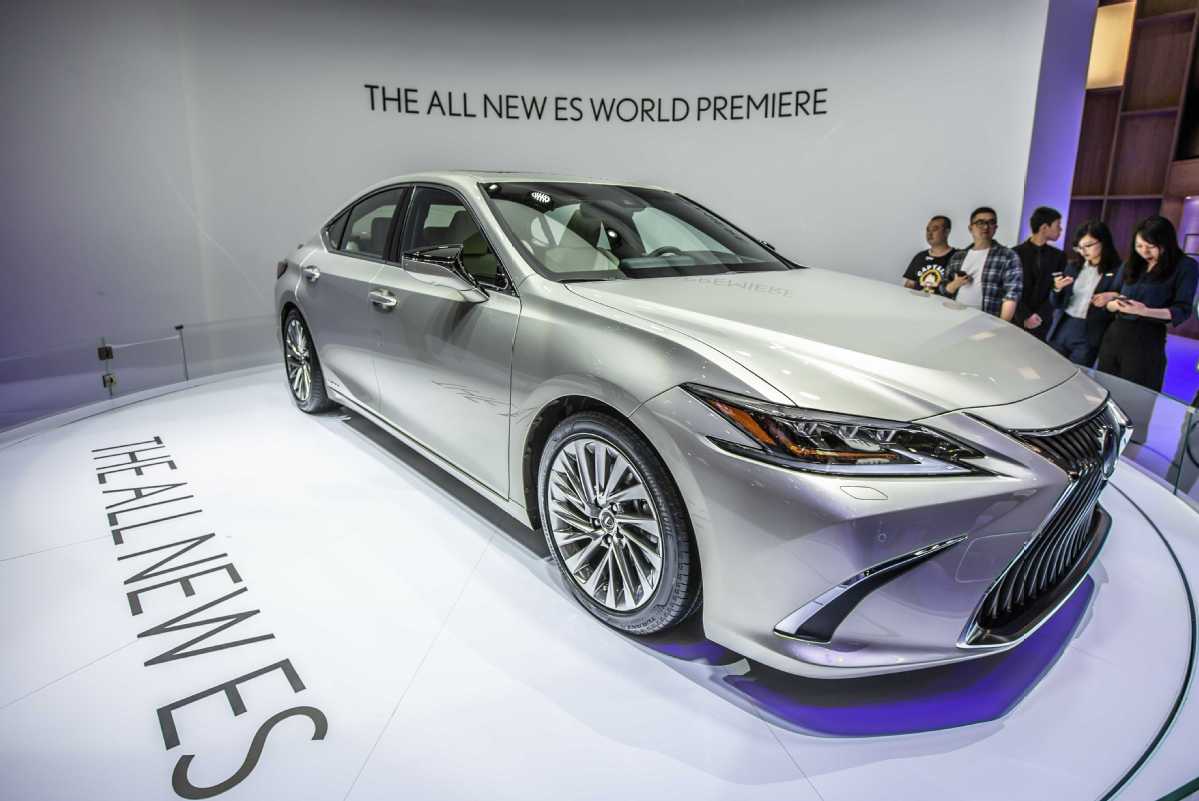Import sales get back on the gas in July after slow June

Cuts to tariffs lead to robust growth in market demand
Following a slump in June, China's vehicle imports soared in July, mainly as a result of tariff cuts for models made in countries except the United States, and analysts said they expect an upward trend for the whole year.
In July, China imported 165,000 automobiles, up 50 percent year-on-year, according to statistics from the General Administration of Customs.
Almost all brands saw robust growth in July, with Japanese premium marque Lexus seeing its best ever month in China.
One of few carmakers that have not localized models in China, Lexus sold 15,201 cars in July, up 37.5 percent year-on-year.
The surge came after China's announcement in late May to slash tariffs on imported cars from 25 percent to 15 percent starting from July 1, which prompted carmakers ranging from Audi to Porsche to cut the price tags of their imports.
Cars made in the US, however, are an exception, subject to a 40 percent tariff because of Sino-US trade tensions that have simmered for months.
Cui Dongshu, secretary-general of the China Passenger Car Association, said Chinese customers delayed their purchases of cars in June to July in expectation of lower prices, which thus caused a slump in June and then a surge last month.
He said the 15 percent fall in June was a major reason for the 5 percent dip in imported vehicle sales in the first half of the year, which totaled 496,000 units, but he expected China's new tariff will drive up imports in the second half.
"It would be impossible for the surge in July to repeat again this year but sales would grow steadily, offsetting the dip in the first half and resulting in some growth compared with last year," said Cui.
China imported 1.22 million vehicles last year, according to the General Administration of Customs, and around one fifth of them were made in the US, including those from Tesla and Lincoln as well as some models bearing BMW and Mercedes-Benz marques.
Cui said the extra tariff on cars made in the US will not reverse the expected upward trend considering their proportion of China's total imports.
Li Yanwei, an analyst at the China Automobile Dealers Association, said the market this year will be a little better than in 2017, adding that his confidence is backed up by premium carmakers' sales performance.
Citing statistics from dealers across the country, he said a total of 20 premium car brands present in the Chinese market saw an average growth rate of 14.4 percent year-on-year in July, and sales went up for most of them, with the exceptions of Jaguar Land Rover, Infiniti, Acura and Maserati.
Sales of brands that were expected to be hit hard by Sino-US trade tensions - Lincoln, BMW and Mercedes-Benz - have survived almost unscathed, although their profits will be gnawed to some extent.
Lincoln, which imports all its models from the US, saw its China sales in July edge up 2 percent to 4,500 units.
BMW, whose imports Li said account for around 35 percent of China sales, sold 46,692 cars in the month, up 7.8 percent year-on-year, and Mercedes-Benz, which has a similar percentage of imports as BMW, delivered 52,616 cars, up 8.3 percent.
Li said the sales were partly the result of some discounts at dealerships and it is hard to predict how the sales would be later this year, but a reassuring message for carmakers and dealers is that demand for imported models made in the US did not shrink immediately.
"Another sign of premium carmakers' confidence is that none have scaled down their sales target in China so far. In contrast, some even have raised their goals a little bit, which shows that they are positive about the market," said Li.
Porsche expects its China sales to approach 80,000 cars this year, said Detlev von Platen, the carmaker's head of sales and marketing, in late July when the new Macan made its global premiere in Shanghai.
That would equate to a 30 percent second-half increase over last year.
Volumes through June fell 7 percent to 33,000 vehicles in China due to a weak second quarter.
But chances are that Porsche will hit the target because, unlike BMW and Mercedes-Benz, all of its models are made in Germany and stand to benefit from the tariff cut.

